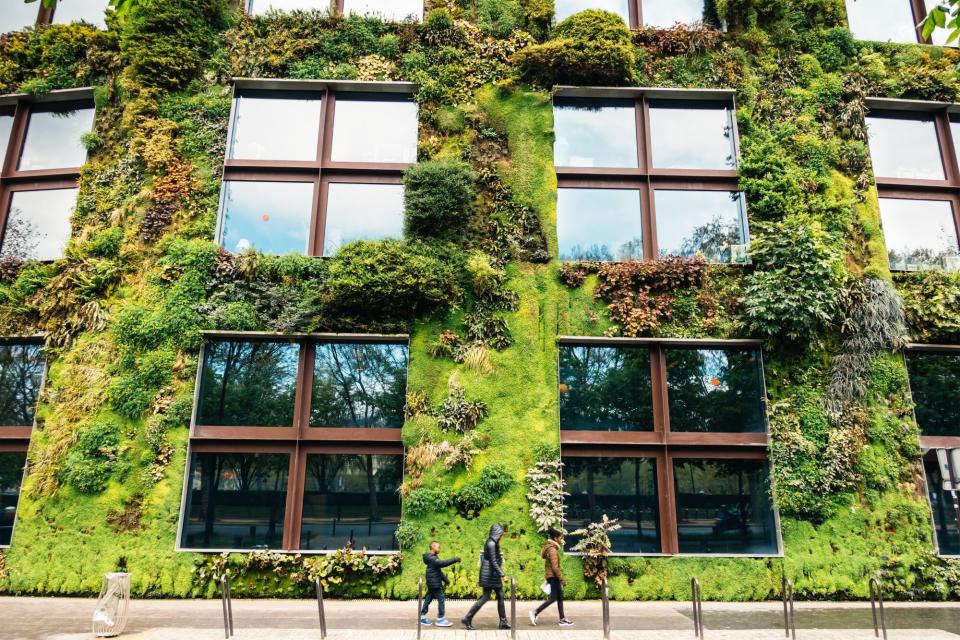Planting Vertical Gardens in Cities Can Help Reduce Stress Levels Among Residents, a New Study Found
The beauty of nature is truly all-encompassing: Fresh air and time spent in the great outdoors helps boosts both mental and physical health. Even if you live in a big city without tons of access to green spaces, a little exposure to nature really does go a long way. And there are even ways to help city dwellers enjoy a little more of what Mother Nature has to offer. Researchers at the Nanyang Technological University, Singapore (NTU Singapore), recently published a new study in the peer-reviewed academic journal Landscape and Urban Planning, and their findings suggest that just looking at vertical plants on the outside of buildings in urban locations can serve as a buffer for stress.
The researchers used Virtual Reality (VR) as a means to test their theory with 111 participants. Each of their test subjects either viewed a street with planted greenery on balconies, walls, or building pillars or looked at buildings that only featured green painted walls. Plus, the research team made the experience as close to reality as possible for their volunteers, so the virtual experiment also included loud traffic noise.
Related: Vertical Gardens Are the Perfect Small Space Solution for Plant Lovers
After monitoring the heart rate variability of each participant through a portable electrocardiogram (ECG) device, the scientists discovered that the people who only saw the green painted walls had increased stress levels. Those who saw the planted greenery didn't have changes in stress. The volunteers also filled out questionnaires that highlighted their positive emotions (like excitement or interest) and negative emotions (like hostility) along with their anxiety levels. Overall, people felt less positive if they weren't surrounded by the plants.

borchee / Getty Images
"With urbanisation, more people are expected to be living in urban areas globally in future," associate professor Lin Qiu, principal investigator of the study and psychology programme member at the NTU School of Social Sciences said. "It is thus important for urban city planners and architects to understand factors that can contribute to healthy living, as urban planning can have a direct impact on quality of life for the population. Our work can guide efforts to green cities, by providing evidence of how vertical greenery can be a viable way to integrate nature into our built environment and promote mental health."
Greenery is known to also add a sustainability factor to environments: Walls of lush plants can help reduce ambient temperature and limit carbon emissions. "Our findings have important practical implications for city planning and design, especially for high density urban areas that face land constraints," Sarah Chan, co-lead author of the research and and a PhD candidate from the interdisciplinary graduate programme, said. "It provides evidence that vertical greenery systems, which make use of vertical structures above-ground, may help moderate the detrimental consequences of stress."

